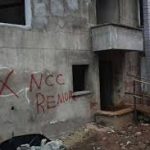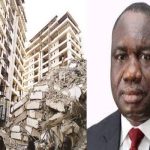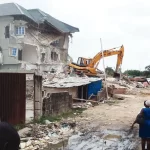With the rising cost of living in Nigeria and recent demolition exercises in Lagos state, the number of those who are homeless is increasing.
By 2035, the UN projects that Lagos will be home to 24.5 million people, being the most populated city in Africa.
But with the number of people migrating into Lagos from the North and Eastern part of the country to seek greener pastures in the commercial capital city, getting a proper shelter on meager earnings is more difficult than ever. What’s more burdensome is the cost of living in Lagos.
About two weeks ago, the Lagos state building control agency embarked on a demolition exercise in Mushin and Lagos Island identifying distressed buildings across the state to prevent the incidence of building collapse.
This exercise has however left about a thousand homeless, adding to the uncounted population with no roof over their heads and victims of inhumane developers.
Rashidat Anifowose ran back home from her store when she heard her house was being demolished, the developer had promised that the house would not be demolished until February 2024, apparently he gave the tenants a different notice after a 1.3 million naira payment for rent.
Another affected tenant is this civil servant, Rabiu Jamiu who was until the demolition residing at 21 Oke-arin street on Lagos Island. Living in the property for 13 years did not prepare him for the 11th of September’s quick eviction.
Evacuating his family from the now partially demolished building is unimaginable.
Perhaps, the first time anyone would hear of the infamous 500-room residential building was in 2014 after a Punch newspaper report chronicled what life is like in the maze-like building.
On the 17th of September, 2023, at about 12pm, occupants of the building were asked to leave following a partial collapse the day before, the latest eviction further reinforces what low income families go through in houses like this.
The demolition gives us a picture of what the building looks like, behind the compound is a swamp, or should we call it makeshift toilet for tenants.
For days, many occupants slept on the Oduntan street, some because there was no alternative, others to safeguard their property. The partial collapse also affected residents of the building next to the Agboye house.
Opposite the Agboye residential building, we meet Khadijah Oyewande, the widow of a police sergeant in the Lagos state police command, her husband died on the 9th of May following a brief illness. She has lived in this house for about 20 years. For a woman still mourning, another problem she has to face is the idea of being homeless. She is about to be chased out of her apartment.
While the government seems to show great concern for the safety of occupants of distressed buildings, for the likes of Chinedu, Rashidat and Etong getting a roof over their heads is a greater concern and an alternative shelter will just be the succor they need.














